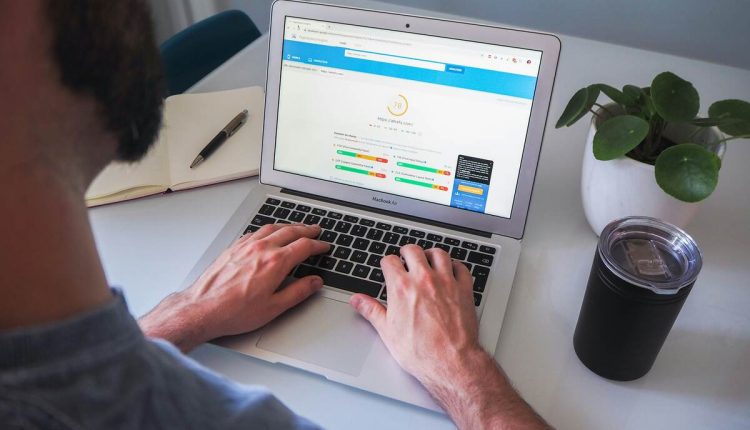SEO requires extensive knowledge and process. In addition to continuous monitoring to detect when traffic decreases on a crucial page, an entire site goes offline, or any other issue arises, as well as any necessary corrective action being taken immediately. Best way to find the Mix Authority Backlinks.
Staying up-to-date on SEO research, news, and best practices should be a part of your daily routine – sites such as SEO services. Can you provide this kind of update?
On-page optimization
On-page optimization can significantly increase organic website traffic by helping individual web pages rank higher in search engine results pages (SERPs). Professional SEO specialists focus on keywords to ensure content that meets search queries is appropriately optimized.
On-page optimization involves keyword research, meta descriptions, and other elements that influence SERP ranking. Keyword stuffing, which involves repeatedly using one word over and over, should be avoided; Google penalizes this practice, and it may result in lower search engine rankings as a result.
Content optimization is at the heart of on-page optimization. To be effective, content must be informative, helpful, and easy to read while meeting users’ current search intents. Focusing on user experience by producing high-quality, engaging content showcasing your brand’s unique value proposition is of utmost importance when optimizing pages for search. Check out the Best info about Google Booster.
Off-page optimization
Off-page optimization refers to techniques digital marketers employ to increase website traffic, such as link building, social media marketing, and public relations (PR). Collectively, these tactics work towards improving page quality and increasing Google rankings; however, not all tactics have equal effectiveness.
Off-page SEO tactics can be precious as they signal to search engines that your content is authoritative and trustworthy. Examples of off-page SEO signals are backlinks (also referred to as citations), online reviews, and brand mentions.
One effective strategy to boost off-page SEO is encouraging positive customer reviews on review websites or your local Yelp page. Not only can this strategy enhance SEO, but it will also build trust and credibility between search engines and their users.
Increase the ratio of “follow” links over no-follow links to help improve off-page SEO, as this can prevent Google from flagging your site as spam and increase the effectiveness of link-building campaigns. Obtain the Best information about Link Pyramid.
Link building
One of the cornerstones of SEO is link building. Numerous studies have demonstrated its significance as one of the key ranking factors; however, not all link-building techniques are created equal: some strategies may be spammy and won’t help improve search engine rankings, while others could provide tangible benefits to improve them.
An effective link-building strategy starts by promoting your best content across other websites. Use tools like Broken Link Builder or broken link detection extensions in Chrome browser to search relevant pages with decent domain ratings that match up to your topic, then contact them with information that your version of their content is superior.
Link building offers another advantage by increasing your Domain Rating (DR). A higher DR is indicative of website health and can influence metrics like SERP ranking and revenue opportunities. Link-building campaigns can be measured effectively by tracking their referrers (referring domains) and traffic levels; one way of measuring effectiveness would be monitoring how many referring domains or traffic you get per campaign.
Keyword research
Keyword research is the practice of identifying and analyzing specific words or phrases your audience uses when searching the Internet for information. Doing this provides invaluable insight into their needs, enabling you to tailor content specifically to their inquiries – thus increasing website traffic and drawing more visitors in. Furthermore, keyword research makes your marketing campaigns more cost-efficient and can even reduce operational expenses by making decisions more informed by research data.
Step one in this process involves identifying keywords pertinent to your business or industry. Brainstorm or create an existing list, then consider each keyword’s underlying intent – aligning your content with their expectations will improve their experience on your site, increasing the likelihood that they stay longer and explore other pages.
Once you’ve identified keywords, the next step should be researching their search volume and competition. You can do this either using a keyword research tool or conducting manual searches on Google; alternatively, you could organize them using spreadsheets into topic buckets.
Analytics
SEO analytics provide valuable insight into the effectiveness of a website’s content, helping to identify which pages draw users in and where issues with engagement arise. They also reveal which search queries are driving traffic to a site as well as the frequency with which visitors return – insights that can inform future marketing campaigns.
Bounce rate is an essential metric, measuring the number of visitors who access a page but immediately leave without staying for more than five seconds. An excessively high bounce rate could signal problems with content strategy or navigation structure. Other metrics to take into account are visit duration and the use of heatmap tools that visualize how users interact with websites.
SEO analytics may seem complicated, but they are essential in making informed decisions about SEO strategies. They can identify technical issues such as slow page load times or crawl errors which prevent search engines from indexing a site or used as benchmarking data against competitors to highlight gaps in backlinks or content that exist on websites compared with each other – providing an outline for improving SEO to outstrip competition in search engine results.


Comments are closed.